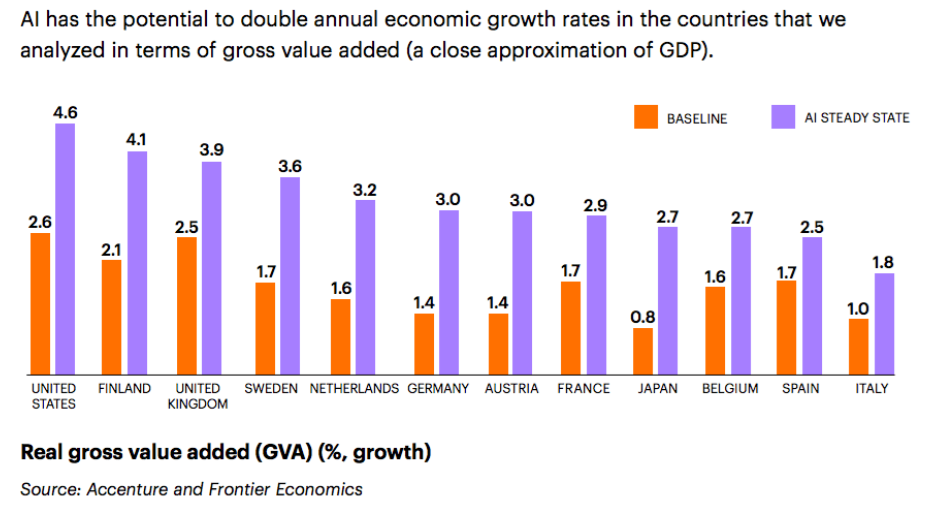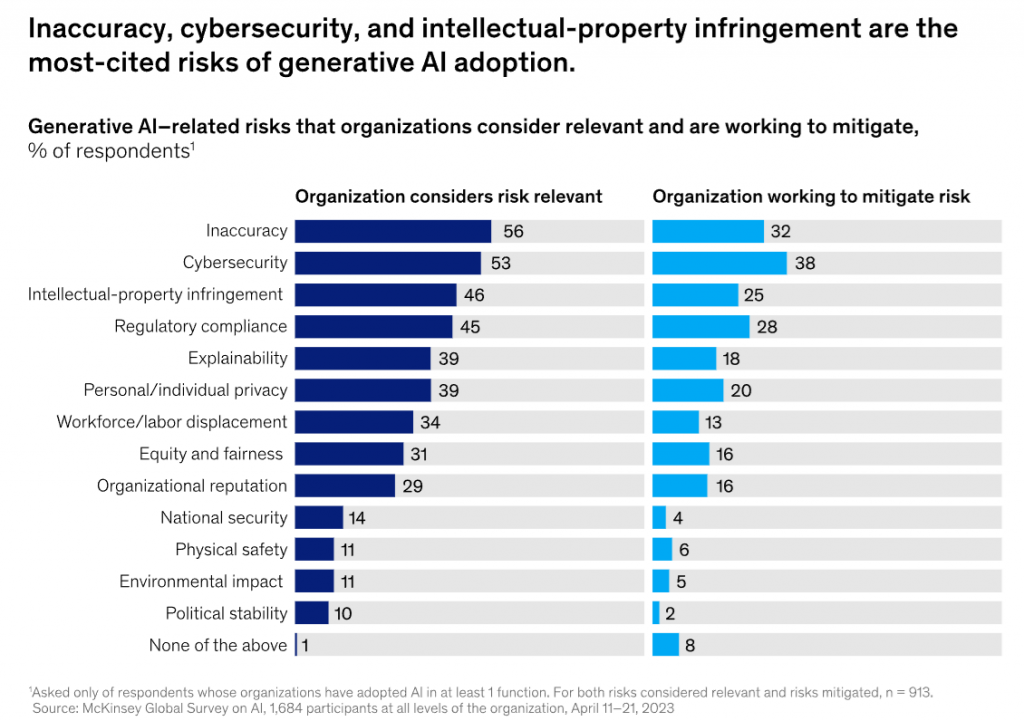
The rapid advancements in Artificial Intelligence are reshaping the world economy, presenting a blend of opportunities and challenges. Amid scepticism, born from the cyclical nature of technological hype, it is essential to scrutinise AI’s transformative potential. There is a need to study the complex effects of AI, and its influence on productivity, labour markets, and industrial concentration.
Before getting into the specifics of AI’s economic impact, it is crucial to acknowledge the inherent tension between optimism and apprehension surrounding this transformative technology. While some envision AI as a utopian driver of prosperity, others fear its potential to exacerbate inequality and disrupt the very fabric of human work. Let us examine AI’s influence on productivity, jobs, and market dynamics to understand the complex relationship between opportunity and challenge.
READ I Valuations deflated, VCs shy: Startups pivot towards pragmatism
AI and productivity growth
Despite its evolving technical prowess, AI adoption may continue to be slow, potentially leading to prolonged periods of low productivity growth. This scenario reflects a continuation of historical patterns where technological promise takes decades to manifest in economic data, reminiscent of the Solow Paradox – “You can see the computer age everywhere but in the productivity statistics.”
In contrast, AI could be the driving force behind a significant productivity revolution. This optimistic view foresees AI not only enhancing efficiency but also transforming job roles, allowing workers to focus more on innovation and creative tasks. This transformative force could lead to a dynamic, inventive workforce, with AI acting as a catalyst for growth and innovation across various sectors.
While AI promises economic growth, its environmental footprint demands attention. Training complex models consumes vast amounts of energy, potentially increasing carbon emissions. However, AI can also revolutionise resource management, optimise energy grids, and drive innovation in clean technologies. Striking a balance between economic progress and environmental responsibility necessitates research into greener computing solutions and policies that incentivise sustainable AI development.
The dichotomy of income inequality
AI might intensify economic disparities by replacing mid-tier jobs, pushing more workers into lower-paying service roles, and increasing income inequality. The automation of creative tasks, such as content creation and customer interaction, could expand the range of jobs at risk, leading to a labour market increasingly divided between a high-skilled elite and a large underclass in menial service roles.
But, AI also has the potential to become a great equaliser. By aiding less skilled workers, AI could narrow the income gap, complementing human labour, and leading to a more equitable distribution of economic gains. Tools like Copilot, which assist software coders, illustrate how AI can democratise expertise, potentially reducing income disparity.
Economic impact of AI


The development and operation of AI models could also lead to increased market dominance by large firms, creating barriers for smaller companies. This could result in stifling of competition and innovation with market power concentrated within a handful of corporate giants.
Alternatively, the rise of open-source AI models could democratise access to advanced technologies, fostering a competitive market where small and medium-sized enterprises can leverage AI to innovate and grow. This could lead to a more dynamic and diverse economic environment, challenging the trend of increasing industrial concentration.
Synthesising insights
Goldman Sachs projects that AI adoption could significantly boost global GDP, potentially increasing it by 7% over a decade. This forecast is based on AI’s ability to revolutionise various sectors, leading to substantial economic gains. The impact of AI on worker demand is crucial. The introduction of new tasks and job categories, stimulated by AI, is vital for enhancing worker marginal productivity and employment growth.
The emergence of generative AI, like OpenAI’s ChatGPT, has sparked significant excitement. However, its practical utility is still under scrutiny due to issues like inaccuracy and the tendency to generate misleading information, raising questions about its long-term economic impact.
Shaping AI for societal benefit
AI carries ethical baggage. Algorithmic bias can perpetuate inequalities, while data privacy concerns are paramount. The potential for AI-driven surveillance raises fears of a dystopian future. To harness AI’s benefits responsibly, robust ethical frameworks and clear regulations are crucial. We must ensure diverse representation in AI development, protect individual data rights, and establish guidelines for ethical algorithm design and deployment.
Strategic policy interventions are essential to harness AI’s potential for broad societal benefit. Policymakers need to focus on promoting AI development that complements human labour, supports smaller businesses, and fosters an open-source ecosystem. Understanding AI’s broader economic and social implications is crucial, requiring investment in research and policy formulation.
The trajectory of AI in shaping the global economy is subject to technological evolution, policy decisions, and societal values. While AI’s full impact remains uncertain, it holds the potential to reshape economies profoundly. Navigating this landscape will require a balanced approach, ensuring that the benefits of AI are widely distributed and its challenges effectively managed. As AI continues to evolve, a concerted effort across sectors is crucial for realising a future marked by sustainable and inclusive economic growth.
AI’s economic future will be shaped by an intricate interplay of technological advancements, policy decisions, and societal values. Embracing a proactive approach and investing in research to understand AI’s potential pitfalls can maximise its benefits. Policymakers should prioritise frameworks that encourage inclusivity, support vulnerable workers, and foster a dynamic, competitive environment. Ultimately, navigating the AI revolution demands collaboration across sectors and a commitment to responsible development, ensuring that this powerful technology serves as a force for good, fostering a future where prosperity is shared and progress benefits all.

